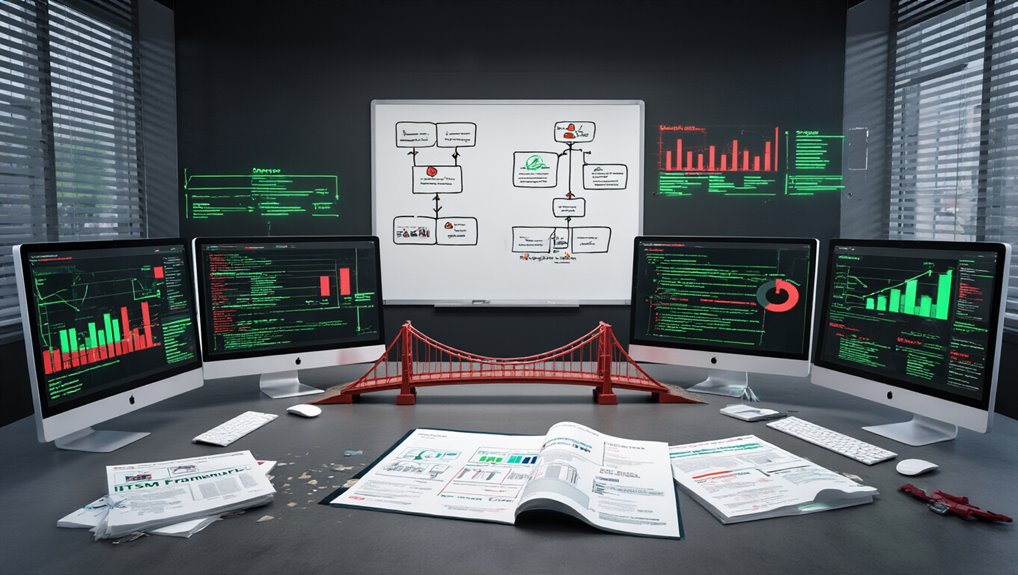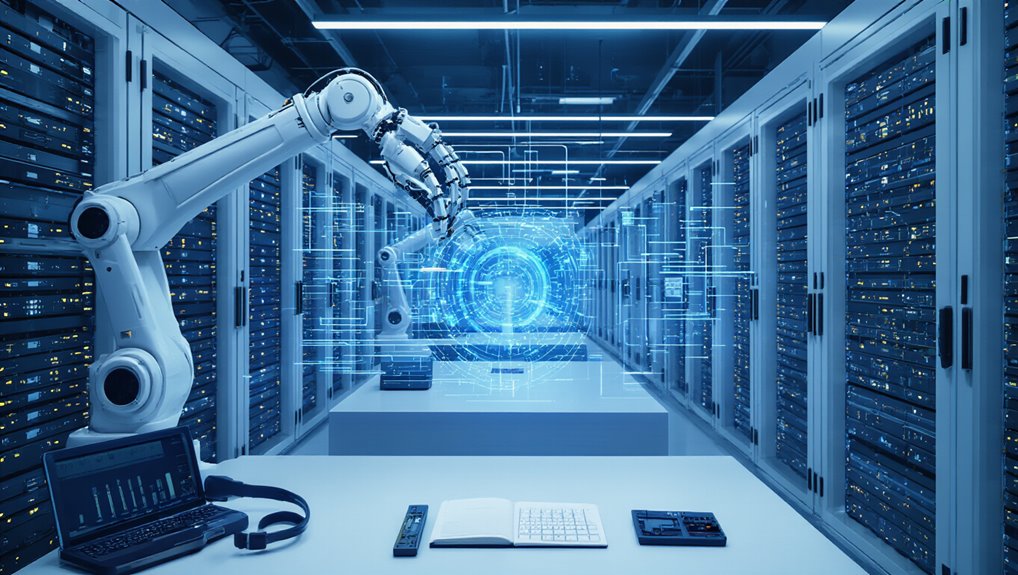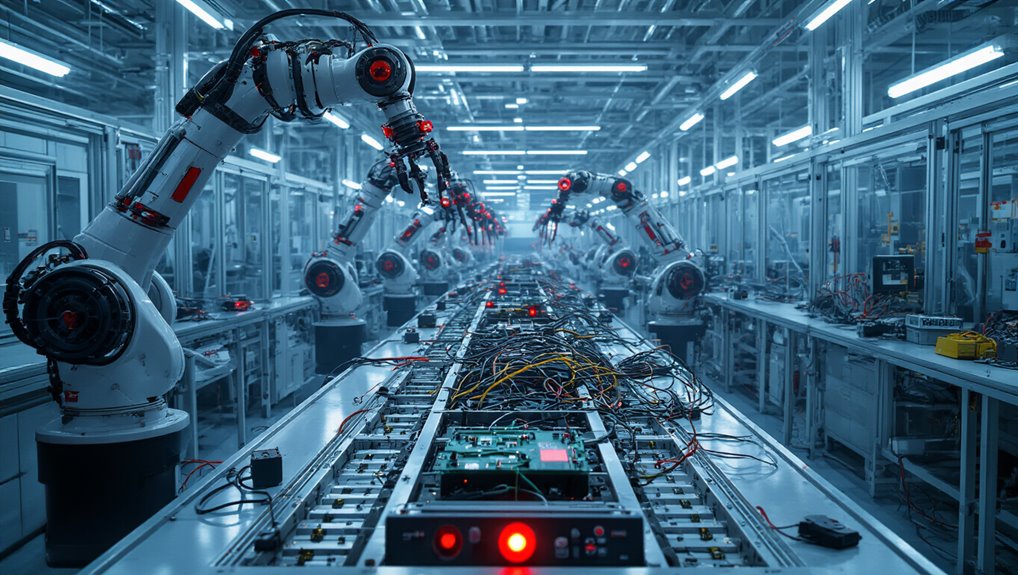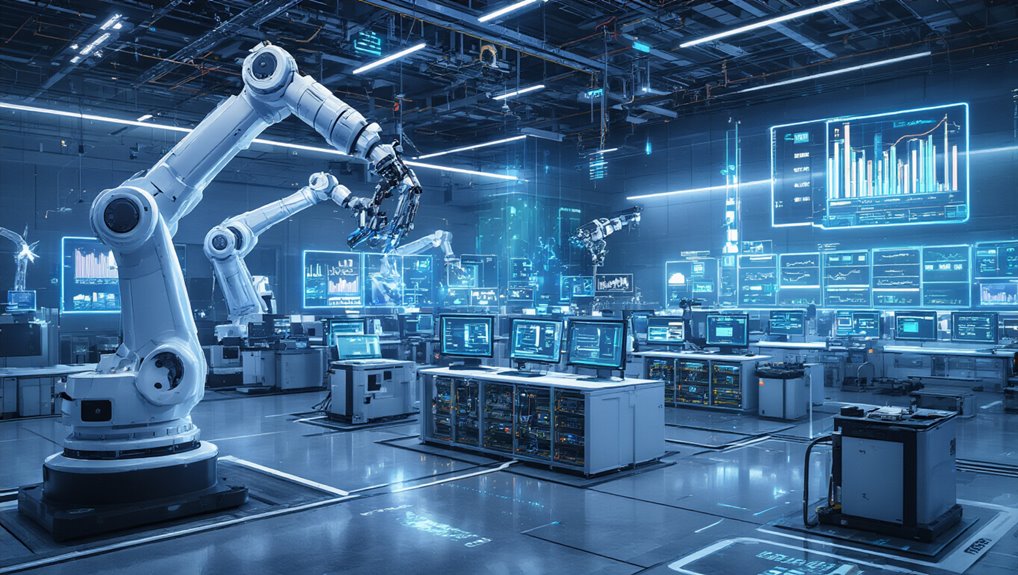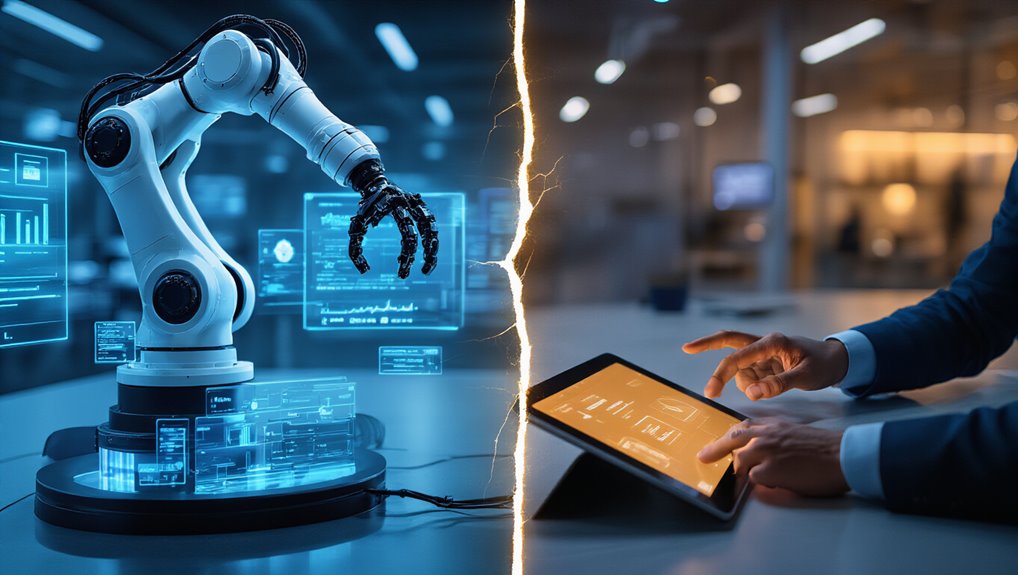As organizations seek to streamline operations and enhance customer experiences, service desks are undergoing a profound transformation through AI automation. The traditional service desk model is rapidly evolving, with AI technologies reshaping how customer inquiries are handled and resolved. By 2025, increased automation is expected to considerably reduce operational costs while improving service efficiency across industries. The integration of RPA and chatbots has become essential for modern IT departments seeking to remain competitive.
Current data shows that First-Level Resolution rates hover around 74%, but with AI implementation, these numbers could reach 80% or higher. This improvement directly translates to cost savings, as escalations to higher support tiers become less frequent. Simple tasks like password resets that once required human intervention can now be automated, reducing per-contact costs to between $0 and $10.
The financial impact of AI integration is substantial. Organizations implementing AI-driven automation report a 30% decrease in customer service operational costs. Response times improve by up to 37%, while resolution times decrease by as much as 52%. This efficiency allows human agents to focus on complex cases requiring empathy and critical thinking. Implementing proper API integration can further enhance data synchronization between service desk platforms and other business systems, reducing manual errors and improving operational efficiency.
Customers are embracing this shift, with 67% expressing openness to AI assistants for service inquiries. Approximately 80% report positive experiences with AI-powered customer service. The technology can handle up to 70% of inquiries autonomously and reduce handling times by about 80%. Research indicates that AI could contribute up to $4.4 trillion annually to the global economy through such productivity enhancements.
To successfully implement AI in your service desk:
- Start with an audit to identify repetitive tasks suitable for automation
- Launch small pilot projects before full-scale implementation
- Create clear escalation paths from AI to human agents
- Invest in training to help agents work effectively with AI tools
- Continuously monitor performance metrics and adjust as needed
The future service desk will represent a hybrid model where AI handles routine interactions while human agents address complex issues requiring emotional intelligence. Organizations that embrace this evolution now will gain competitive advantages in efficiency, cost control, and customer satisfaction.

